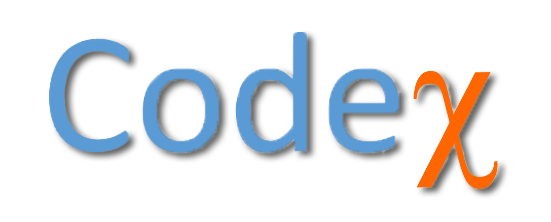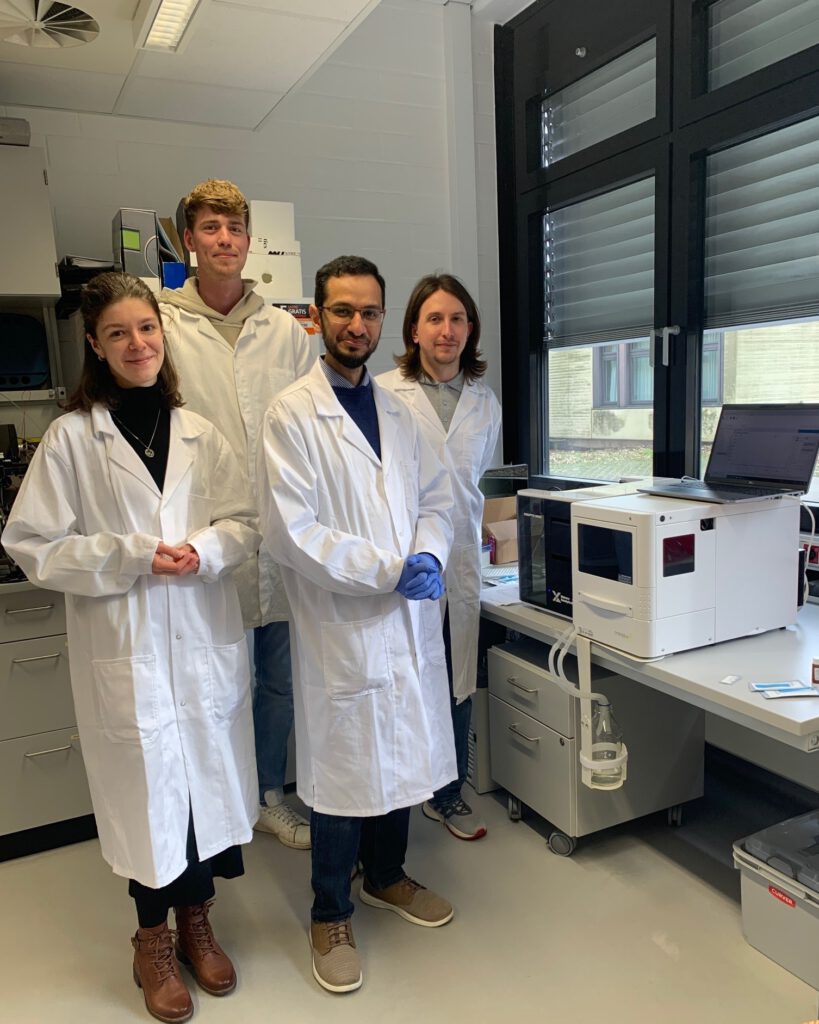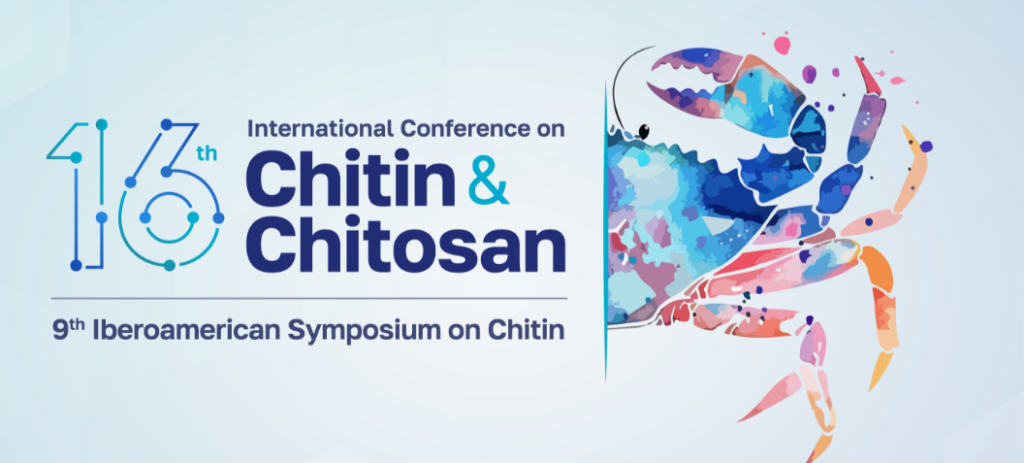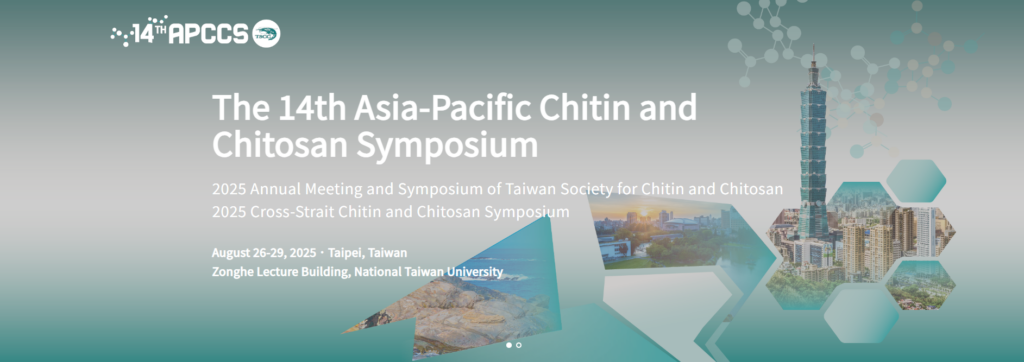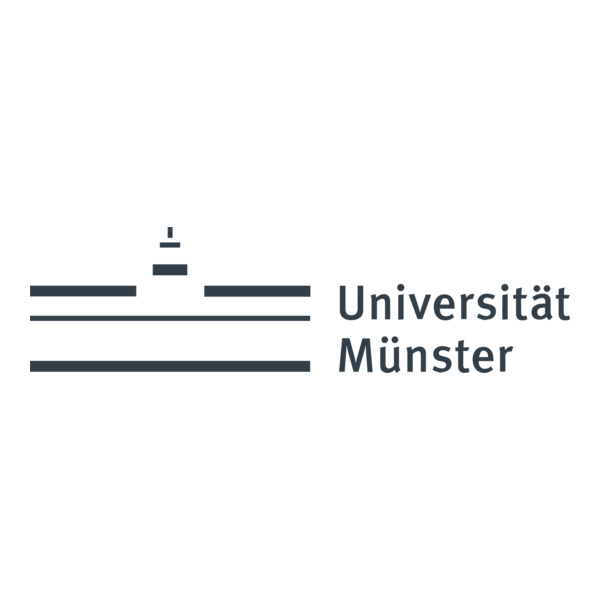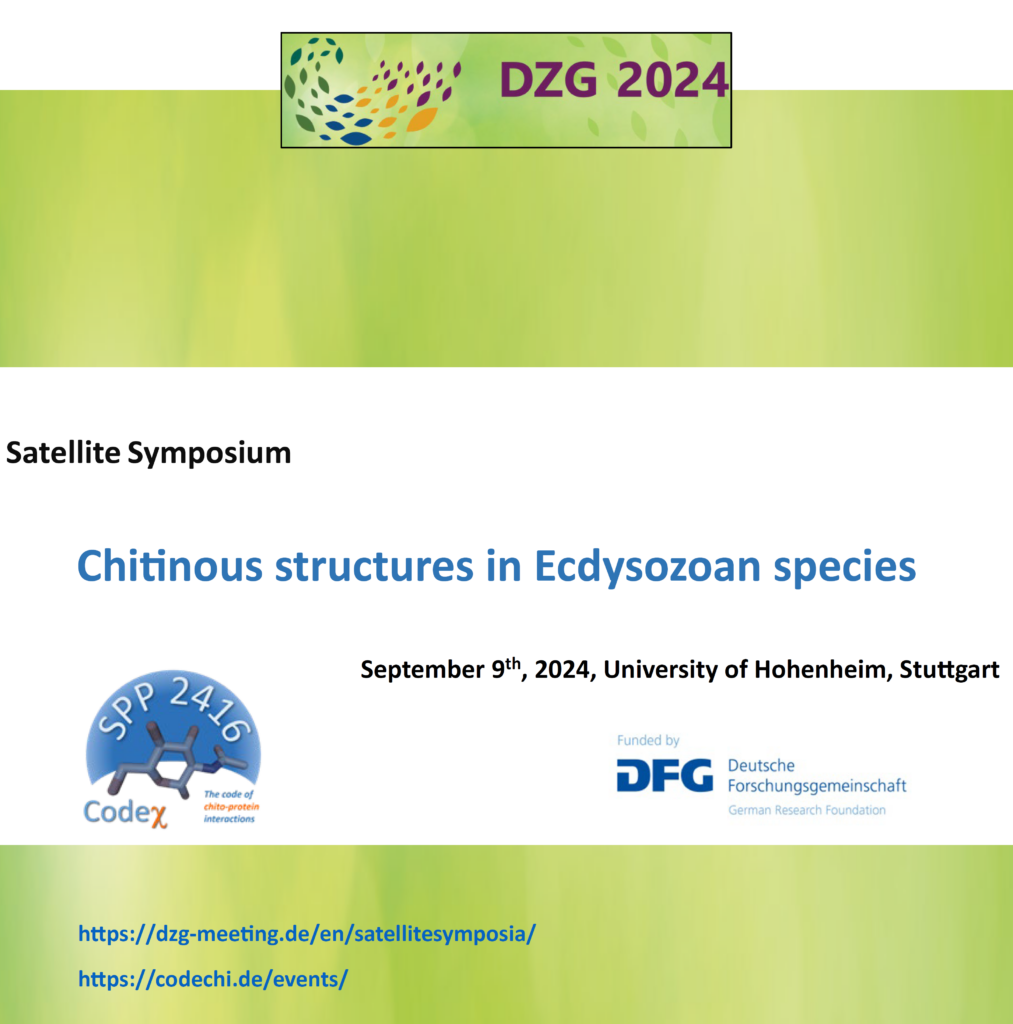Prof. Hans Merzendorfer’s team recently completed a two-day on-site training focused on the newly installed Creoptix WAVEsystem in his lab. Hosted at the University of Siegen on February 15th and 16th, the sessions were conducted by experts from the company Malvern Panalytical, offering hands-on training and insights into the WAVEsystem’s broad bioanalytical capabilities.
Utilizing high-sensitivity Grating-Coupled Interferometry (GCI) technology, the WAVEsystem offers an advanced bioanalytical tool for studying biomolecular interactions on biosensor chips. Participants in the training gained valuable practical experience in operating the system, designing experiments, and analyzing data.
Supervised by Dr. Ehab El-Awaad as part of the Service Project 3 of the SPP 2416, this system is now accessible to members of the Codeχ consortium for analyzing their biomolecular interactions of interest, assisting them in addressing key research questions essential to decrypt Codeχ.
If you are interested in using the WAVEsystem for your project, please reach out to Prof. Hans Merzendorfer or Dr. Ehab El-Awaad for further information. They will be happy to provide additional details and assistance.
